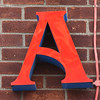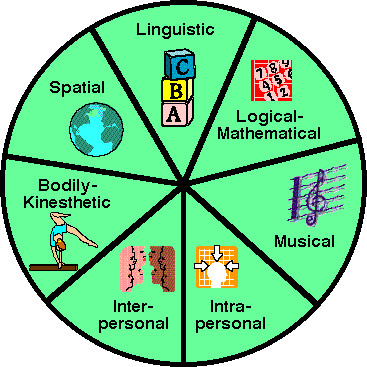webskillsgilmarmattos
Sunday, February 28, 2021
Leituras sobre Tema 1
Muito enriquecedoras as leituras propostas sobre o Tema 1: as tranformações que vivemmos sobretudo por conta da pandemia em 2020, o confinamento e sua continuidade ainda agora em 2021. Tornou-se mais gritante a necessidade dos professores, das instituições de ensinos, dos alunos e das famílias, enfim, de toda a sociedade entenderem que não é mais possível mantermos o modelo de ensino mais do que ultrapassado que infelizmente ainda é dominante no nosso país. Os textos reforçam o fato de que não há "nada" de errado com o modelo de ensino online. O grande problema é fazer simplesmente uma transição de um modelo já ultrapassado mesmo no ensino presencial para o ambiente virtual: transmissão paternalista de conteúdo tornando a experiência cansativa, insuportável para todos. Precisamos trabalhar para que a experiência de aprendizado seja sempre desafiadora, motivadora para os estudantes. Para tanto, há que se pensar em novos modelos de ensino que valorizem a curiosidade, a pesquisa, a cooperação/colaboração e o pensamento crítico.
Devemos aproveitar essa oportunidade que a adversidade nos oferece. Muitas escolas e, em algumas situações, professores isoladamente ou em pequenos grupos já vinham fazendo mudanças mais ou menos expressivas, reconhecendo que o modelo padrão não mais atende às necessidades dos estudantes. A pandemia simplesmente acelerou esse processo e decisões precisaram ser tomadas da noite para o dia. O chamado Emergency Remote Teaching (ERT) foi fundamental naquele momento quando a outra alternativa seria o fechamento completo das escolas e o abandono dos alunos sem nenhuma alternativa para aprendizagem. Contudo, a lição já deve ter sido aprendida e o momento agora pede para uma sofisticação das práticas improvisadas que tiveram seus méritos mas não atenderão às exigências de mercado. Precisamos de treinamento contínuo para estarmos qualificados e preparados para enfrentarmos quaisquer necessidades que certamente se mostrarão presentes na nossa área de atuação, a Educação.
Como Ensinar Ativamente em Modelos Híbridos e Online
Este será meu espaço para reflexão durante o curso CEAMHO. Sou Gilmar Mattos, professor de inglês como língua estrangeira há 32 anos! Desde 2008 venho estudando e tentando melhorar meus conhecimentos sobre o melhor uso das Technologias Educacionais em sala de aula. Trabalho em um Centro Binacional, Centro Cultural Brasil Estados Unidos em Franca-SP. No CCBEU, exerço diversas funções e uma delas é coordenar os professores facilitando seu acesso ao uso das ferramentas digitais. Como todos, fomos "obrigados" a acelerar o processo ano passado por conta da pantemia e tranferirmos todas as aulas para o modelo online em caráter emergencial. Retomamos às aulas presenciais agora em fevereiro com número reduzido de alunos, seguindo os protocolos de segurança, mas cientes de que precisamos estar melhor capacitados para novos modelos (híbrido) de ensino. Tenho certeza de que esse curso me ajudará imensamente tanto pelo conteúdo quanto pela possibilidade de troca com educadores tão experientes. A qualificação dos nossos instrutores também dispensa comentários.
Sejam bem vindos!
Friday, June 10, 2011
Week 10






We have reached the last week for this amazing course and this is the last blog assignment.
It is still hard to believe we have reached this level as time has slipped away so fast.
I am really thankful for this great opportunity for professional development. I have learned a lot as each week was particularly rich focussing on different areas technology can come to our rescue as language teachers to enhance our teaching and, most importantly, our students' learning.
I have enjoyed all the topics but, of course, there were some that I got more interested in. I particularly liked to learn about the ABCD model for behavorial objectives during week 2, something I had never heard of and I find essential now to write clear objectives of any task I propose to my students.
I had already learned about social bookmarking and I have been using DIIGO for some time now. However, it was also good to have a second try with Delicious and have access to the bookmarks from my peers doing the course now.
Week 5 was also rich as we learned about WebQuests and Rubrics. These are examples of technology I had not heard of either and it is just so practical and useful that it is hard to believe how I managed to get by for so long without using them. Rubrics are really helpful as you can make it clear for your students what is it that they are supposed to do and how they will be evaluated before they get into a project.
Week 6 was quite challenging for most of us as we were asked to create an interactive powerpoint and although I had tried it before it was very good to practice it again and see the amazing creations of my peers. This is the area I want to practice more as I could see students love it and learn a lot from well-prepared interactive powerpoints.
The project we had to develop for the course was another wonderful opportunity to choose one specific tool we wanted to test with a particular group we had been teaching. I decided to work with blogs as I strongly believe this is a fantastic tool to promote learner interaction and give students the chance to practice the language when they are not in the classroom. It is real,effective communication and they can see they are writing to a broad audience having the chance to reach people from all over the world.
I had some difficulties with the group I selected as students have been particularly busy with their regular school and, consequently, they could not devote much time for this initial blogging experience. Some did create their blogs and have been posting regularly now.
I intend to work with it again as soon as we start the second semester in August.
All in all, I just have to thank the Univeristy of Oregon in partnership with the American Embassy for the course. Our tutor, Donna Shaw, has also been impeccable, always there for us with her skillful guidance and expertise.
I remember posting in one of the discussion boards on NICENET the one thing I believe you could try to add to the course is some sort of synchronous communication using some specific tool for that and teach the participants how to use these tools : adobeconnect, wiziq or the likes. I am sure everybody will enjoy to be together live at least once during the course.
I hope to keep in touch with everybody making good use of all the online possibilities we now have and I wish the best of luck for the next participants in the course.



Sunday, June 5, 2011
Week 9 - Multiple Intelligences and Learning Styles
Another amazing week in which we had the chance to read and discuss more about the Theory of Multiple Intelligences by Howard Gardner from his book called Frames of Mind.
I have always been very much interested in that so it was a great pleasure to be able to read more about it and also learn from my peers who added so much to the discussion board on NICENET.
I have come across this video with Dr Howard Gardner and I want to keep it safe here for future reference.
We managed to connect this theory of the multiple intelligences,nine so far: verbal-linguistic; logical/mathematical; visual/spatial; bodily/kinesthetic; musical/rhythmic; intrapersonal; interpersonal; naturalist; existentialist with the different learning styles: active and reflective learners; sensing and intuitive learners; visual and verbal learners; sequential and global learners as explained by Richard Felder and Barbara Soloman from the North Carolina State Univeristy.
I have also come across this short video summarizing the main points about different learning styles:
We all agreed that the key for success is reaching a balance of teaching methods so each and every learner is catered for and gets at one point or another what will certainly help him to learn more effectively. Care must be taken to expose learners to other ways of teaching/learning they may not feel most comfortable with at first but which will be essential for their full development and success no matter the career they choose to follow.
Another amazing opportunity for professional development!
Welcome (final) week 10!
Sunday, May 29, 2011
Week 8
Another week is coming to an end and once again we have had the chance to learn a lot of new things from and with each other. The one tool that was realy new for me was ANVILL - A National Virtual Language Lab.It was a great opportunity to go back in time and see how things have improved since I started learning English back in the early 80's. I am really glad we have so many new, appealing, effective tools to offer our learners nowadays. The days of meaningless, boring repetition and recording to cassettes (!) are past and gone.
I have also managed to write the draft to my final project and share it with a peer to be analyzed and improved. It is still a work in progress specially because the students I have selected for it have not been able to produce much as it was first agreed. Time has been on the way again and I must find a solution to this problem.
As we had to create something for the course making use of any tool/website we have been introduced to so far, I have decided to create a class using NICENET for a group of novice teachers at the Binational Center where I teach. I really believe this is going to be very useful for them to express their opinions and develop critical thinking.
All in all, a very enriching week and a preparation for the conclusion of the course.
As I love music in the classroom I have just remembered this song that may be quite appropriate for the moment we are living.
Welcome week 9!
Sunday, May 22, 2011
Week 7 - Autonomy
"A teacher is one who makes himself progressively unnecessary." ~Thomas Carruthers
This is the one quote that came to my mind as I was reading about Learner Autonomy and How It Can Be Fostered.
I strongly believe we teachers/educators should highlight our roles as facilitators in the classroom these days. Having so many resources, tools around to help students become more independent, it is crucial that we do our best to help learners select what can serve them the best.
A number of ideas I have were highlighted in the main text suggested for us to read this week. From these I would call attention for:
a) autonomous learning is by no means "teacherless learning";
b) it is not easy for teachers to change their role from "providers" of information to counsellors and managerss of learning resources
Motivation plays a very important role in this discussion of making learners more autonomous and, again, it is our job to try to show students the motivation they may have and are not aware of to be successful as language learners.
Last, but certainly not least, we had the chance to create a lesson plan based on the concept of one-computer classroom. I find it extremely important as this is the reality most of us live so far. We may dream of the days when we might have a computer for each student in the class. However, I think a lot can be done even when resources are scarce and that was shown in the great lesson plans I could see produced by my peers doing this course. As they say "Where there is a will, there is a way."
Sunday, May 15, 2011
Week 6 - Interactivity and More
This has been another very intense week and I have learned so much from the readings and links within the readings and, of course, from the comments posted by my peers doing this amazing course.What a rich, diverse group! It's a privilege to be among them.
I believe that the introduction to interactive powerpoint presentations has been by far the most challenging one for most of us. I had had an introduction to it some time ago when I did another online course on webtools but it was a great opportunity to get my hands dirty again.
Of course, we must NOT forget this is just another tool we can use to engage our students more in their learning process. However, there must be a real purpose to use whatever tool we come across. A badly prepared teacher can ruin the best activity even if it is supported by the fanciest tool available. We go back to the basics : preparation is essential!
Another great moment of the week was the opportunity to interact with the Editors for FORUM (Max Koller and Tom Glass), an amazing publication by the United States Department of State for teachers of English and distributed abroad by U.S. embassies. I have been reading this magazine for a long time and it is a great resource to be used in the classroom. I think that for those who like writing, it is a great moment to start considering writing an article to be published in the future. It is certainly hard work but I am sure it is well worth the effort.
Have you ever published anything? Would you like to? Is there a topic you are particularly interested in to devote time and energy and write an academic paper?




I would like to conclude with a favorite quote of mine:
"Whoever dares to teach must never cease to learn". - John Cotton Dana
Subscribe to:
Posts (Atom)










